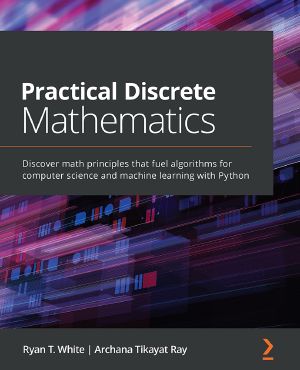Practical Discrete Mathematics

- Authors
- Ryan T. White & Archana Tikayat Ray
- Publisher
- Packt Publishing
- Date
- 2021-02-22
- Size
- 6.07 MB
- Lang
- en
A practical guide simplifying discrete math for curious minds and demonstrating its application in solving problems related to software development, computer algorithms, and data science
Key FeaturesApply the math of countable objects to practical problems in computer scienceExplore modern Python libraries such as scikit-learn, NumPy, and SciPy for performing mathematicsLearn complex statistical and mathematical concepts with the help of hands-on examples and expert guidanceBook DescriptionDiscrete mathematics deals with studying countable, distinct elements, and its principles are widely used in building algorithms for computer science and data science. The knowledge of discrete math concepts will help you understand the algorithms, binary, and general mathematics that sit at the core of data-driven tasks.
Practical Discrete Mathematics is a comprehensive introduction for those who are new to the mathematics of countable objects. This book will help you get up to speed with using discrete math principles to take your computer science skills to a more advanced level.
As you learn the language of discrete mathematics, you'll also cover methods crucial to studying and describing computer science and machine learning objects and algorithms. The chapters that follow will guide you through how memory and CPUs work. In addition to this, you'll understand how to analyze data for useful patterns, before finally exploring how to apply math concepts in network routing, web searching, and data science.
By the end of this book, you'll have a deeper understanding of discrete math and its applications in computer science, and be ready to work on real-world algorithm development and machine learning.
What you will learnUnderstand the terminology and methods in discrete math and their usage in algorithms and data problemsUse Boolean algebra in formal logic and elementary control structuresImplement combinatorics to measure computational complexity and manage memory allocationUse random variables, calculate descriptive statistics, and find average-case computational complexitySolve graph problems involved in routing, pathfinding, and graph searches, such as depth-first searchPerform ML tasks such as data visualization, regression, and dimensionality reductionWho this book is forThis book is for computer scientists looking to expand their knowledge of discrete math, the core topic of their field. University students looking to get hands-on with computer science, mathematics, statistics, engineering, or related disciplines will also find this book useful. Basic Python programming skills and knowledge of elementary real-number algebra are required to get started with this book.